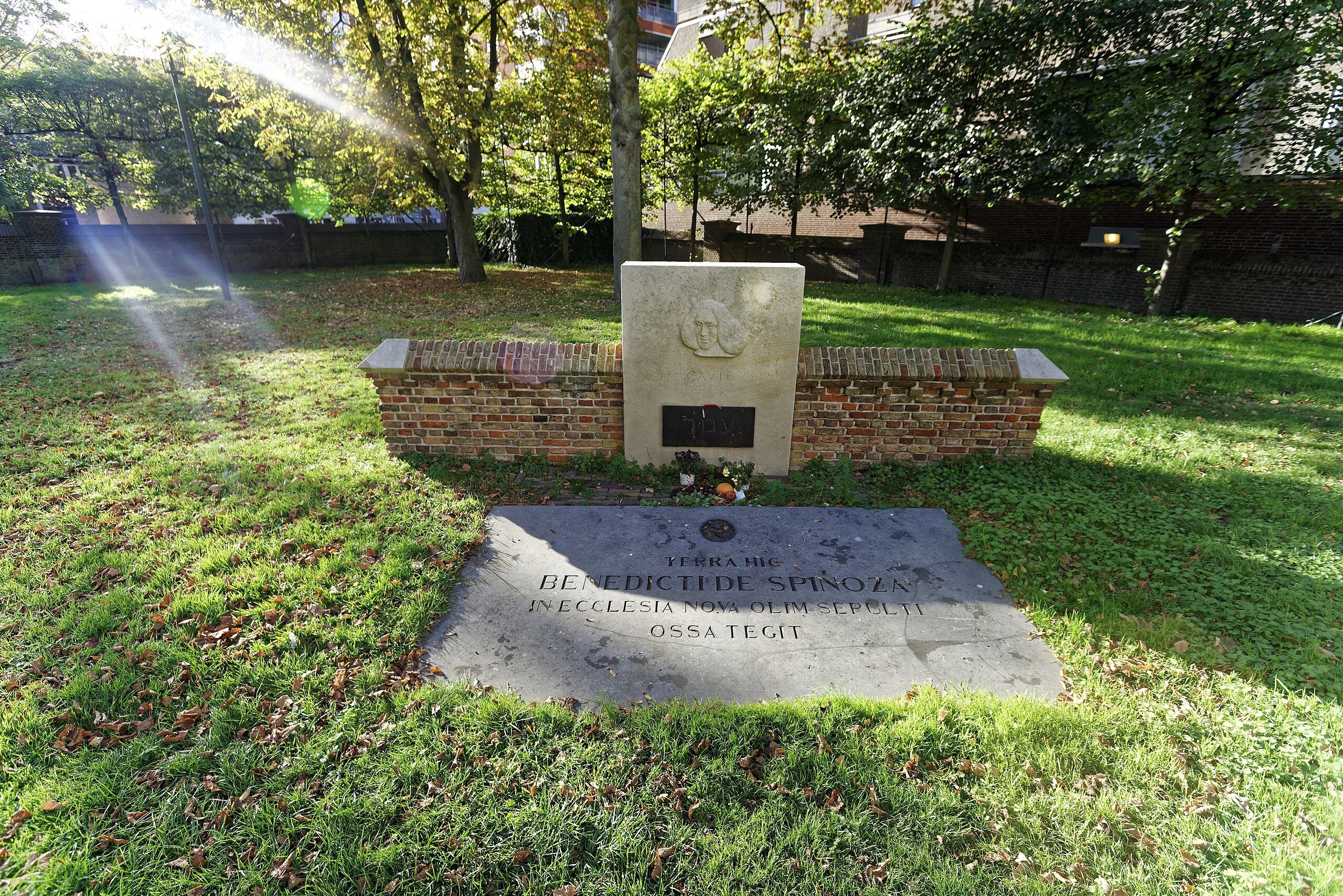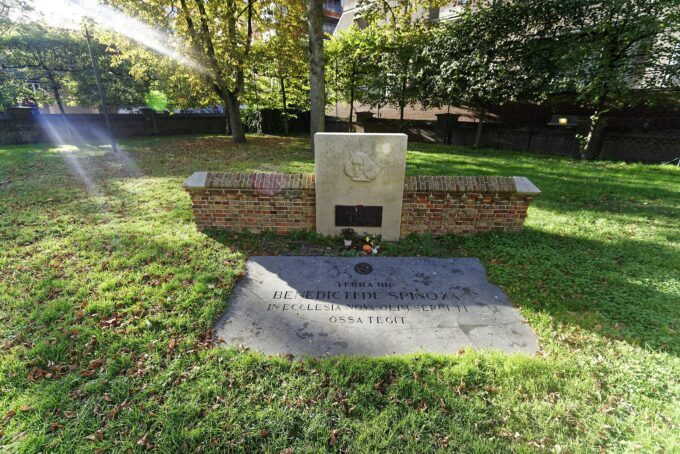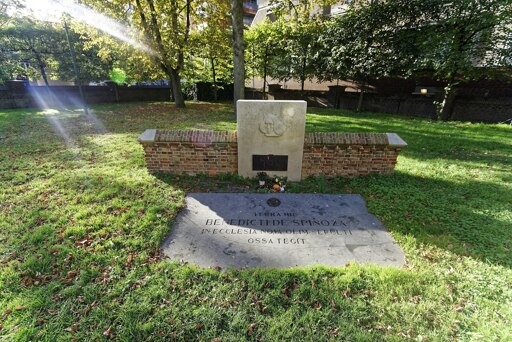

Photograph Source: Unknown author – Txllxt TxllxT – CC BY-SA 4.0
A simple, lonely grave behind the Nieuwe Kerk in the centre of The Hague is a monument to Baruch de Spinoza. Only very determined admirers visit from time to time to pay their respects, though Spinoza was one of the fathers of tolerance in Western culture. For reasons of national pride, many Dutch like to state how his thought deeply marked the country. In many respects it was so, but today only the shadows of tolerance remain in some domains of the Dutch social life.
Politics is not one of them.
In the context of the most recent elections, it is unavoidable to point to the paradox of tolerance as a philosophical concept: if a society extends tolerance to those who are intolerant, it risks enabling the eventual dominance of intolerance, thereby undermining the very principle of the notion.
Chaos in the Parliament
After the 2023 elections, a long period of hectic discussions brought on the scene a colorful coalition of right-wing parties. At the opening of the Dutch parliament last September, newly minted Prime Minister Dick Schoof, pushed to the forefront by right-wing extremist Geert Wilders, was attacked over remarks by two cabinet ministers about a conspiracy theory with neo-Nazi roots.
The opposition accused new Asylum and Migration Minister Marjolein Faber and Foreign Trade and Development Aid Minister Reinette Klever, both from Wilders’ anti-Islam PVV party, of playing with the term omvolking, the Dutch term for the “great replacement theory” that supposes that Europe’s white population is being deliberately replaced by immigrants. Both ministers have distanced themselves from the accusations, but insisted that there was a “worrying demographic development” in the Netherlands that forces the ruling coalition to implement the “strictest immigration policy ever.”
Schoof, though a veteran career civil servant from the Dutch intelligence, couldn’t find his footing in the chaos that ensued. This would have been amusing as a Monty Python skit, but it was highly disturbing when the political future of a country was at stake. The Dutch left-wing opposition accused Schoof of tolerating those who have made “conspiratorial” and “racist” remarks, and Wilders himself then launched a virulent attack on Schoof, calling him “weak” for not defending his ministers against the charge of being racists.
So the prime minister appeared isolated on all sides. Sarah Bracke, sociology professor at the University of Amsterdam noted: “I was particularly struck by how defensive Wilders was and how he tried in a frantic and authoritarian way to deny the racism that his party clearly propagates in various ways … It is intellectually and politically untenable to continue to deny that the ideas at the heart of the PVV, and also of this government, are not racist, or that it would be enough to no longer mention the term “great replacement” to make extremist and racist ideas disappear.”
Immigration and a new asylum law have been the most pronounced themes during the 336 days of Schoof’s government. The unwavering Minister Faber was often in the spotlight. Christian Democratic leader Pieter Omtzigt suffered burnout and left the ruling coalition and politics altogether. Conservative-liberal leader Dilan Yeşilgöz threatened to throw in the towel.
Even Wilders allegedly intended to pull out of the coalition in December, unwilling to make any concessions on asylum policy. His 10-point plan contained several measures that experts consider illegal, like a complete asylum stop, closing shelters, halting family reunification, and deporting Syrian asylum seekers. Finally, when other party leaders refused to sign his plan, Wilders pulled the PVV from the coalition and his ministers from the cabinet in June 2025. But Wilders announced he would fight in the coming elections to make the PVV even stronger with the aim of becoming prime minister.
During these 11 months, the country’s housing problems have not been resolved, money for education and culture has been reduced, foreign students have been told to stay away, and public health workers are still neglected.
Dutch firms have also continued their profitable arming of Israel with the blessing of the government, which shies away from using the term “genocide” or condemning Netanyahu’s actions in Gaza and the West Bank. In February 2025, the foreign affairs committee of the Dutch House of Representatives withdrew an invitation to Francesca Albanese, the UN Special Rapporteur on the occupied Palestinian territories, which disrespected the UN and international law. Later in the year, Foreign minister, Caspar Veldkamp, member of the New Social Contract party resigned after a cabinet meeting failed to secure sanctions against Israel. The only action taken by the government was to bar the far-right Israeli ministers Itamar Ben-Gvir and Bezalel Smotrich from entering the country in July.
Eruptions on the S****treets
Dutch citizens have been publicly more active than ever before. Demonstrations occurred for different reasons. For example, during and after the football game between Macabi Tel Aviv and Ajax, violent clashes started on the streets of Amsterdam in November 2024. Geert Wilders immediately proclaimed that a “pogrom” was taking place. After the international media picked up on that term, it served to spread unrest in the Jewish community in Amsterdam and much wider. The truth of the matter is that the Maccabi supporters were not innocent victims. By provoking a situation that turned violent, they gave state actors a political opportunity to politicize division and mistrust. Hatred from both sides was palpable. Afterward, a few injured Maccabi hooligans were treated in hospitals for minor injuries and released, and 62 rioters were arrested. Five of them, all citizens of Amsterdam, got short prison sentences. It is not clear if any of the Israeli sport lovers got punished at all.
Violence in the streets was present also in September 2025 during a protest organized by a right-wing activist in The Hague demanding stricter migration policies and a clampdown on asylum seekers. Around 1,500 people blocked a highway crossing the city. Violence erupted when large groups, many waving Dutch flags and flags associated with far-right groups, confronted security forces. They also smashed the windows of the headquarters of the center-left D66 party. The police used tear gas and water cannons to disperse protesters, 30 people were arrested, two officers injured, and a police car was set on fire. Wilders condemned the violence against police as “utterly unacceptable,” saying it was the work of “idiots.” He neglected to admit that it was his statements and actions that inspired the violence.
Much more pronounced have been the large-scale peaceful gatherings. Students and professors protested against the budget cuts, and citizens came together to denounce the unbearable housing situation. Extinction Rebellion climate demonstrations have been repeated regularly and always lead to hundreds of arrested, who are released a few hours later.
But the biggest manifestation has been the “Red Line” demonstrations to pressure the government to act against Israel’s war in Gaza. What began as a protest of 100,000 people in The Hague on May 18 grew in less than four weeks to 150,000 and surged to an estimated 250,000 demonstrators in Amsterdam at the beginning of October. A significant segment of Amsterdam’s Jewish community also joined the protest with placards condemning the genocide. Many drew parallels between Netanyahu’s regime and the Third Reich, highlighting both the historical trauma their families endured during the Holocaust and the suffering now faced by Palestinians.
Before the Holocaust, Amsterdam had the largest Jewish community in the Netherlands and was a leading center of Jewish cultural life in Europe. Under Nazi occupation, within five years, more than 80 percent of the city’s Jewish population was exterminated. Nowadays, they are standing up to challenge the new violence, this time not perpetrated by German Nazis but an Israeli government using the same methods that once annihilated millions of Jewish victims.
Winners and losers
Obviously, the Netherlands is a deeply polarized country, a place of power struggles marked by slavish behavior toward Donald Trump’s high-handed actions, toward relations with Israel that’s in the grip of big industries, and toward NATO chief Mark Rutte, whom many didn’t like before. Many Dutch citizens are outraged at the government’s suspicion toward the rule of law, migrants, and all things foreign.
The fact that 26 parties took part in the October 29 elections for 150 seats in the parliament made it challenging for outside analysts to understand the outcome. Even the usually reliable Guardian was off the mark with its predictions.
The number of Dutch people who voted on Wednesday was slightly higher than in the 2023 elections. Though the majority of votes have been counted, the Electoral Council won’t announce the final result until November 7. But the change in the political landscape is evident. The results of the exit polls made it clear who the losers and the winners are.
Members of the governing coalition all went down. Wilders’ PVV lost 10 seats, VVD lost two, and the NSC dropped an astounding 20 seats, leaving it with zero. Since nobody intends to form a new coalition with Wilders, it will not make any difference if he got some more votes from a few municipalities. His toxic rhetoric and hate speeches finally have become too much.
What was not expected is that GL-PvdA, one of the perceived potential winners, will lose five seats. The very disappointed party leader Frans Timmermans immediately claimed responsibility and announced that he will step down, handing over leadership to “the next generation.”
The small left parties all maintained their positions, while two right-wing ones, FVD and JA21, gain some votes, probably from the ranks of people disillusioned with Wilders.
There are two undisputed winners. The Christian Democrats (CDA) increased their total from just five to 18 seats. Under the energetic leadership of Henri Bontenbal, who entered politics only four years ago, the party’s campaign focuse on the housing crisis and promised a “normal, civilized politics.”
The biggest winner, however, is the liberal-progressive Democrats 66, which jumped from nine to 26 seats. Their campaign also centered on housing—it plans to build 10 new cities—and an “individual basic benefit” for claimants. This is their best election result ever. Their eloquent leader Rob Jetten, perceived by right-wing voters as a voice of the Dutch elite and by left wingers as not radical enough, won big.
Commentators stated that D66 ran a remarkably optimistic campaign in an otherwise gloomy country. Probably, in today’s Dutch landscape, it is the best that could have happened. And maybe the lonely grave of Spinoza will become more important in the Netherlands of the future. Jetten looks like someone who would encourage respect for the father of tolerance.
This first appeared on FPIF.
The post The Dutch Elections and the Lonely Grave of Spinoza appeared first on CounterPunch.org.
From CounterPunch.org via this RSS feed


